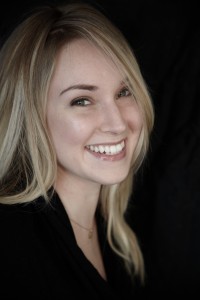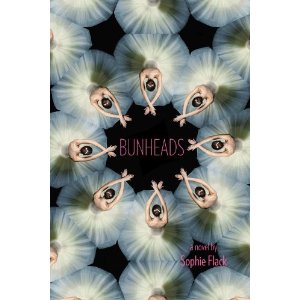
This week on “10 Questions With…” we’re featuring Sophie Flack, author of “Bunheads”… a book about the ballet world. I’m reading it right now, and it’s fabulous!
1. How did you get involved in dance?
When I was seven, the Boston Ballet studios were under renovation and they temporarily relocated to my school gymnasium. I’d see these lithe ballerinas lingering in the hallways as they stretched and spoke to one another between rehearsals. I begged my mother to take ballet classes, but I was too shy to walk into theclass that first day. I wanted my mother to go with me. It took me six months to find the courage to walk in alone.
2. What is your dance background?
I began my training at the Boston Ballet School learning the Vaganova technique. When I was eleven I was introduced to the Balanchine technique by Patricia McBride at the Chautauqua summer intensive. After watching a video of McBride dancing Tchaikovsky Pas de Deux, I decided that I wanted to dance with the New York City Ballet, because I wanted to move like she did.
When I returned home, I transferred to Ballet Workshop of New England in order to study Balanchine technique. I spent my summers training with Suzanne Farrell, Gloria Govrin, Violette Verdy and Patricia McBride.
My mother would drive me to New York City in order to take private lessons with Nancy Bielski and Wilhelm Burmann, some of the best coaches in the country. I took open classes at Steps on Broadway alongside New York City Ballet dancers, and regular Pilates privates with Laurie Hurt.
At fifteen, I was accepted into the School of American Ballet on full scholarship and moved to New York City alone. At age seventeen, I joined the New York City Ballet as an apprentice and became a member of the corps de ballet the following year.
After dancing with the New York City Ballet for nine years, I retired from professional dance in 2009.
3. What is your book about, and who is it written for?
After dancing professionally for nearly a decade I wanted to give readers an inside look at what happens backstage, and what it’s like to grow up in the professional dance world.
The world is viewed though the eyes of a corps de ballet dancer named Hannah Ward, who is conflicted about whether she wants to continue to compete against her friends for a promotion, or see what’s beyond the windowless theater. Even though the novel is set in the elite and insular world of professional dance, Hannah’s coming of age story is really universal – she is trying to figure out what sort of person she wants to be.
 4. What made you decide to write this book?
4. What made you decide to write this book?
Though Bunheads is a work of fiction, I was inspired by the relationships between the women in the corps de ballet – we relied on one another for emotional support and yet we were competitors. When I was in the corps, the dressing room was a safe haven to vent and commiserate and laugh together. In the dressing room, everything was shared and intimate; we discussed every aspect of our lives, and yet there was a distinct air of distrust, too. We were still competitors.
The ballet world has been reluctant to draw back the velvet curtains for fear that the art form would loose it’s magic. I’ve always found the backstage drama really interesting, and I think that allowing the audience a peek will only increase interest.
I was also interested in the non-dancers that are involved in putting on a performance; the stagehands, Greenroom dressers and hairdressers all had unique stories and interesting relationships to the ballet world.
5. How did being a dancer impact your writing?
Because I was writing fiction in the setting of a familiar place, writing this book was a proverbial John Malkovich experience: I peered out of someone else’s eyes – be it a stagehand, a pianist, an apprentice, or a principal dancer. It felt a bit like an acting exercisebecause I imagined that I was right there experiencing what the character was experiencing.
6. 6. What has been the most challenging part of the process?
The writing process was at times emotionally exhausting, because I put myself right back into the world that I had just departed. As I was moving forward with my life, and attending classes at Columbia, nearly all of my free time was spent imagining I was still in thetheater. Writing proved to be an important tool for me as I transitioned from the ballet world into academia. But I was so entrenched in writing that there were times when I had to remind myself that I had left and wasn’t going back. Even today I still have ballet anxiety dreams in which I hear my music and miss my entrance.
7. What has been the most rewarding part of the process?
When I received the very first advanced copy of the book from my editor, I held the book in my hands and started to cry. I was able to feel the weight of my experience in my hands. It was very moving.
8. What do you love most about the dance world?
I love how dancers, and all artists for that matter, need to be incredibly tough, fearless, and resilient, and yet in order to be an artist they must be vulnerable, and be willing to expose their inner most bits.
9. Do you think your dance training helped you at all with writing? Why or why not?
Studying ballet certainly instills discipline, focus, and perseverance – all of which are paramount in writing.
While writing the book, I was taking a few classes at Columbia, which sounds insane, but the intensity of the work load actually fueled me, and felt familiar coming from the rigorous schedule of the corps de ballet. When I was dancing I used to comfort myself by thinking, “You’ve done more difficult things before, and you survived,” and the same mantra rang true in writing a book.
10. What’s next for you?
I’ve begun to write scenes for my next novel! Stay tuned.





What a great interview. Thanks so much, Catherine. And congratulations on your first novel, Sophie!
Can’t wait to read your book, Sophie! As a YA novelist and a ballet instructor myself, I have searched for the right story to tell abut dance, the right perspective to tell it from. Yours sounds terrific!! Kudos and good luck with it!
Thanks ladies for ringing in! I really am loving this book–Sophie is a terrific writer!
What a lovely person she sounds like! I think she will create more interest into this world that does always seem cut-throat…What an interesting interview. I am now going to have to read her book! Thanks